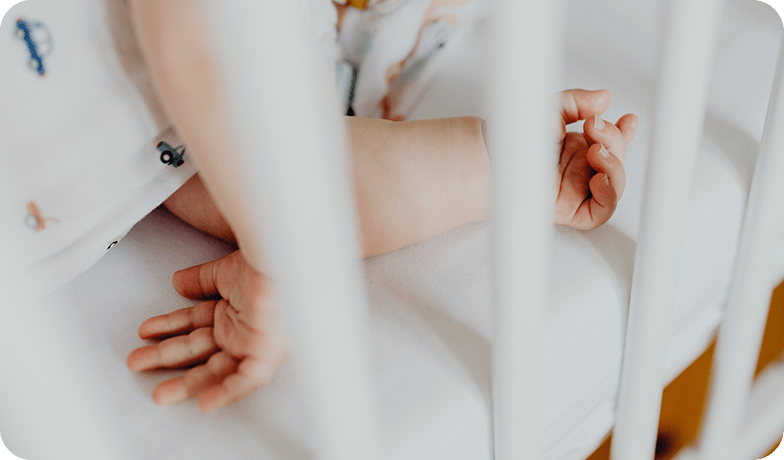
6 Lessons In Navigating Pregnancy Loss from Dr. Sunita Osborn
Miscarriage affects one in four women, yet is rarely talked about. The stigma around pregnancy loss can lead people to feel isolated and guilty, making a difficult experience even more painful. The reality is that miscarriage is unfortunately common.
Our Director of Nursing, Kelly Brown, spoke with licensed psychologist and miscarriage expert Dr. Sunita Osborn about navigating pregnancy loss. After experiencing two pregnancy losses, Dr. Osborn was determined to destigmatize miscarriage both in her work as a therapist and as an author.
Dr. Osborn is a clinical psychologist and Team Lead at Modern Therapy, a three-time author, and a therapist dedicated to working with women everywhere and has extensive experience with high-achieving professionals and creatives. She has become a leading voice in the conversation about pregnancy loss, having appeared on NPR, Psychology Today, and Motherly Magazine.
Read on for six helpful takeaways from Kelly’s conversation with Dr. Osborn.
1. Miscarriage is mismanaged medically, emotionally, and culturally
“Reproductive care in general is such an underfunded and under-acknowledged space in our medical system, even in our psychological system,” says Dr. Osborn. This results in inadequate support and resources for individuals navigating miscarriage. Additionally, the lack of open dialogue surrounding miscarriage contributes to poor management of grief, as individuals may feel isolated and ill-equipped to cope with their emotions.
Within obstetric care, systemic failures can manifest in healthcare providers' inability to dedicate sufficient time and attention to patients experiencing miscarriage, leading to feelings of neglect and abandonment. Dr. Osborn explains, “There’s still this veil of secrecy that comes around perinatal loss. And if other people aren’t talking about it, that gives me the message that I should just be keeping this to myself.”
This culture of silence leaves individuals experiencing with miscarriage feeling isolated. “There’s something that’s really both lonely and potentially dangerous about having to deal with the echo chambers in your mind about what it means,” she says. Furthermore, many individuals experience a double bind, or as Dr. Osborn explains, “feeling bad about feeling bad.” Here, grief is compounded by emotions from loss and emotions which create a painful and isolating experience. Ultimately, miscarriage is a lonely and dangerous territory, where the absence of communal support and understanding transforms grief into a difficult and isolating journey.
2. Grieving the loss of a pregnancy is also grief for the future
For many individuals, assuming the role of a parent begins the moment they receive a positive pregnancy test or starting their fertility journey. From that point forward, they make significant changes in anticipation of welcoming a new life into the world, changing their lifestyle, habits, and priorities. However, when faced with the devastating loss of a pregnancy, it's common for individuals to internalize feelings of blame and guilt.
Referring to her own miscarriages, Dr. Osborn says, “It’s not just about that pregnancy and the length of that pregnancy, which was a number of weeks, but it was also the years of dreams that I had up to that point, too. When we grieve that pregnancy loss, it’s not just the grief of ‘okay my pregnancy lasted this long,’ but [back to] when I was a kid, dreaming about what it would be like to be a parent.”
In other words, pregnancy loss isn’t only the physical absence of a child, but also the loss of an imagined future. This can leave people struggling with a sense of emptiness and longing. Many will understandably also wonder if they’ll be able to have children after their loss.
In moments of grief and sadness, Dr. Osborn suggests that it's natural to want to offer comfort and solace to those who are hurting. We may put pressure on ourselves to say the “right” thing or ask the “right questions.” However, the most meaningful support often comes not from the words we say, but from the actions we take.
Rather than attempt to find the right words or fix the situation, it's important to simply be present. Instead of trying to cheer someone up or offer solutions, offer a listening ear, a comforting embrace, or a shoulder to cry on. Validate their feelings and let them know that it's okay to feel sad, angry, or frustrated. By showing empathy, understanding, and compassion, you can provide invaluable support to those navigating challenges.
One small but meaningful gesture: groceries/meals. If a friend or family member has experienced this loss, it’s natural for many to say, “let me know how I can help,” which ends up putting the onus on the one suffering grief. Consider sending groceries, dropping them on a porch, or just sending over a pre-prepared meal or two. People grieving are rarely up for asking others for much of anything.
3. Grief looks different for everyone
Partners play a crucial role in the journey through miscarriage, providing emotional support and understanding during this challenging time. While they may not experience the physical aspects of miscarriage, they often shoulder an emotional burden.
It's important to engage in open and honest communication with your partner about your needs and preferred form of support, Dr. Osborn says. Rather than assume what they do or don’t need, or expect a partner to know without asking, tell them what you need.
At the same time, it’s important to recognize that partners also need space to process their grief and emotions. Keep the lines of communication open with frequent check-ins and strive to respect each other's individual grieving processes.
Research suggests that women's levels of grief and depression peak immediately after the loss, while male partners experience a spike in grief several months later. Understanding these differences can help foster empathy and mutual support within the relationship as you navigate loss together.
4. Give children age-appropriate explanations about loss
According to Dr. Osborn, “[children] do better with information because if they don’t have the information, they typically fill in the blanks with something else in their mind. As parents, we want to make sure we are supporting them in making sense of the story they are coming up with.”
Without clear, age-appropriate explanations, children may create their own story, which can sometimes be more frightening than the reality. Encourage them to express their emotions while reassuring them that you are still there for them and that their feelings are valid.
By expressing big feelings, you can show them that it's okay to be sad or upset while still moving through your day-to-day life. Check in with your child regularly to see if they have any questions and be ready to provide comfort and support as needed. Fostering open communication can help children feel supported and understood during difficult times. Be mindful your children still need their parents, even if you may not be able to give them everything you typically would.
Dr. Osborn recommended the children's book "Something Happened" by Cathy Blanford as a resource to help children understand and cope with the emotions that come with miscarriage and how it affects the family.
5. Self-soothing and self-care can help you process and navigate loss
Self-soothing and self-care are two distinct but equally important elements of navigating grief, says Dr. Osborn.
Self-soothing provides temporary relief by reducing distress, like taking a bath, while self-care is a more involved process of tending to one’s emotional needs. Self-care looks like taking time for oneself, sitting with uncomfortable feelings, and actively working to integrate and move through grief.
Self-care can nurture emotional well-being and foster healing, laying a foundation for long-term resilience and growth.
6. Journaling is a powerful tool for processing emotions and your journey
Journaling can be a vehicle for self-reflection and self-expression. Dr. Osborn explains that writing with the intention of sharing thoughts and experiences with someone close to us can help us gain clarity and perspective on our feelings and emotions.
One way to start is by imagining that you’re having a conversation with a close friend. Pour your joys, struggles, triumphs, and challenges onto the pages of a notebook. Be open and honest with yourself, knowing that your journal is a safe and judgment-free space for you to explore your innermost thoughts and feelings. Acknowledging your emotions and allowing yourself to express them openly and honestly becomes the first step toward finding healing and solace.
—
Recognizing how common pregnancy loss is can allow people to feel less alone when navigating grief. There’s no timeline for grief, and it often looks different for each person. As Dr. Sunita Osborn shared, shifting stigma starts with breaking our collective culture of silence. In other words, talking about pregnancy loss is one of the most powerful things we can do for ourselves and each other.
About the Expert

Dr. Osborn is a clinical psychologist and Team Lead at Modern Therapy, a three-time author, and a therapist dedicated to working with women everywhere and has extensive experience with high-achieving professionals and creatives. She has become a leading voice in the conversation about pregnancy loss, having appeared on NPR, Psychology Today, and Motherly Magazine.




